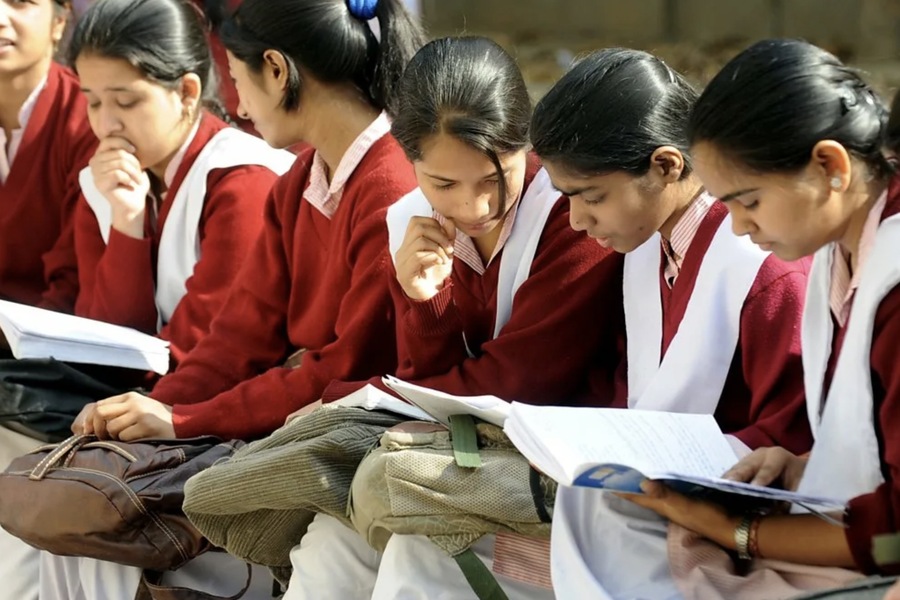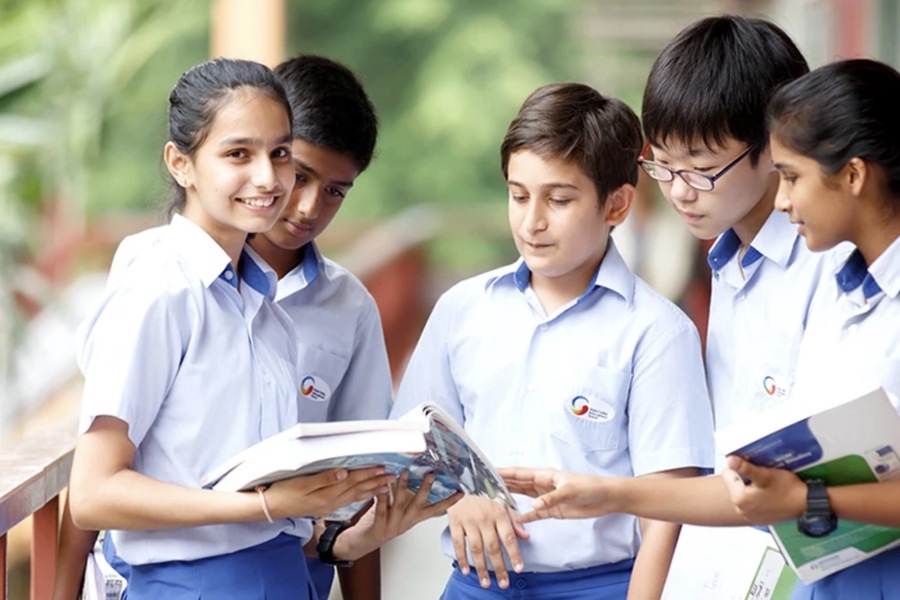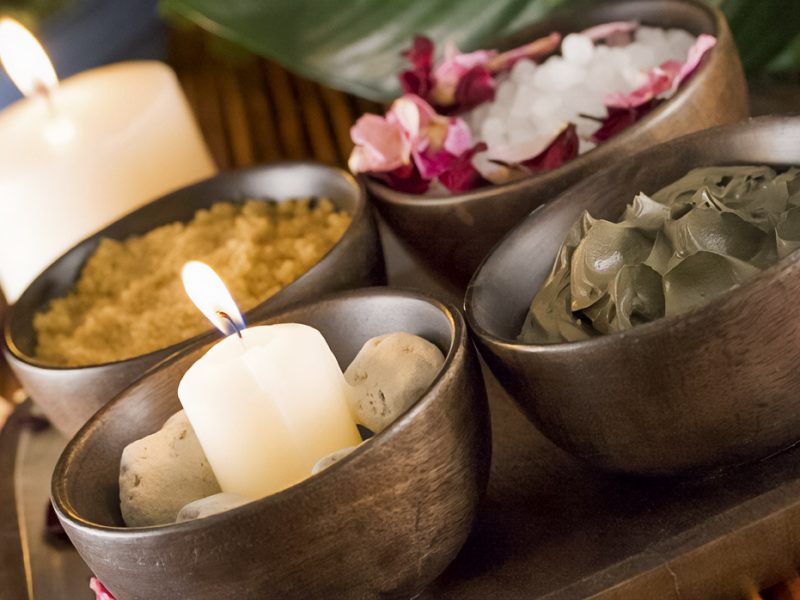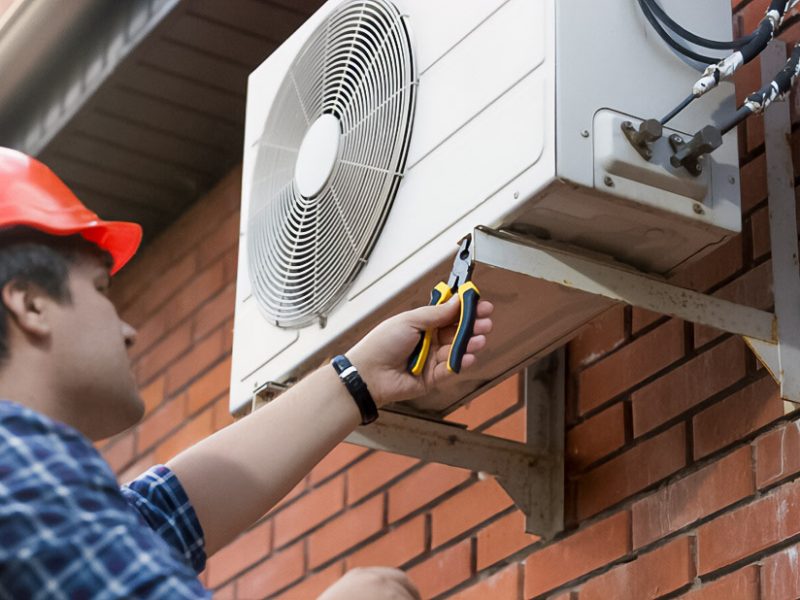The evolution of Indian CBSE schools in Sharjah is a testament to the dynamic relationship between India and the UAE. This evolution has been shaped by the growing Indian expatriate population, the increasing demand for quality education, and the commitment of educational institutions to adhere to the high standards set by the Central Board of Secondary Education (CBSE). This article explores the historical progression of Indian CBSE schools in Sharjah, focusing on the factors that have contributed to their development and the impact they have had on the region’s educational landscape.
Early Beginnings: The Genesis of Indian CBSE Schools in Sharjah
The establishment of Indian CBSE schools in Sharjah can be traced back to the early 1970s, coinciding with the rapid economic growth of the UAE. As the UAE became a hub for global trade and commerce, it attracted a significant number of expatriates, including a large contingent from India. The Indian community in Sharjah, recognizing the need for a structured and recognized education system, sought to establish schools that would offer the CBSE curriculum, which was already well-regarded in India.
The first Indian CBSE schools in Sharjah were modest in size and infrastructure, often operating in repurposed buildings with limited resources. Despite these challenges, they quickly gained popularity among Indian expatriates due to their adherence to the CBSE curriculum, which provided a sense of continuity for students who might eventually return to India or pursue higher education there. The early success of these schools laid the foundation for the expansion and diversification of Indian CBSE education in the region.
Growth and Expansion: Meeting the Educational Demands of a Growing Population
The 1980s and 1990s marked a period of significant growth for Indian CBSE schools in Sharjah. As the Indian expatriate population continued to rise, so did the demand for quality education. This period saw the establishment of several new CBSE schools, each striving to meet the increasing expectations of parents and students. These schools began to invest in better infrastructure, hiring qualified teachers, and expanding their curriculum offerings to include a broader range of subjects and extracurricular activities.
During this time, the reputation of Indian CBSE schools in Sharjah began to spread beyond the Indian community. The rigorous academic standards, coupled with a strong emphasis on discipline and moral education, attracted students from other expatriate communities as well. The success of these schools also caught the attention of local authorities, who began to see the value of having high-quality educational institutions in the emirate. This led to greater support from the government, including the allocation of land for new school campuses and the relaxation of certain regulatory requirements to facilitate the expansion of existing schools.

Modernization and Innovation: Adapting to a Changing Educational Landscape
The turn of the millennium brought new challenges and opportunities for Indian CBSE schools in Sharjah. The global shift towards digitalization and the increasing importance of skills such as critical thinking, creativity, and collaboration prompted these schools to rethink their approach to education. To stay relevant in a rapidly changing world, Indian CBSE schools in Sharjah began to incorporate technology into their teaching methods, invest in state-of-the-art facilities, and introduce innovative programs that focused on holistic development.
One of the key trends during this period was the integration of technology in the classroom. Indian CBSE schools in Sharjah started to use digital tools and platforms to enhance the learning experience, making education more interactive and engaging. This shift was particularly evident in the introduction of smart classrooms, online learning resources, and digital assessment methods. These innovations not only improved the quality of education but also made it more accessible to a wider range of students.
Another important development during this period was the emphasis on extracurricular activities and holistic education. Recognizing that academic excellence alone was not enough to prepare students for the challenges of the 21st century, Indian CBSE schools in Sharjah began to offer a wide range of activities that promote physical fitness, creativity, leadership, and social responsibility. These activities, which included sports, arts, community service, and environmental programs, helped students develop a well-rounded personality and acquire the skills needed to succeed in a globalized world.
Government Regulations and Standards: Ensuring Quality and Compliance
The UAE government has played a crucial role in the evolution of Indian CBSE schools in Sharjah by establishing and enforcing regulations that ensure the quality of education. Over the years, the Ministry of Education and the Sharjah Private Education Authority have introduced various guidelines and standards aimed at improving the overall educational environment in the emirate.
These regulations have focused on several key areas, including teacher qualifications, student-teacher ratios, infrastructure requirements, and curriculum standards. Indian CBSE schools in Sharjah have been required to comply with these regulations to maintain their operating licenses, which has led to significant improvements in the quality of education offered. Schools have invested in professional development for teachers, upgraded their facilities, and adopted best practices in curriculum delivery and assessment.
One notable example of government intervention is the introduction of inspection and accreditation processes. Schools are regularly evaluated on a range of criteria, including academic performance, student well-being, leadership, and governance. The results of these inspections are made public, providing parents with valuable information to make informed decisions about their children’s education. This transparency has created a competitive environment among Indian CBSE schools in Sharjah, driving continuous improvement and innovation.
The Role of Community and Cultural Integration
The success of Indian CBSE schools in Sharjah is not only due to their academic achievements but also to their ability to create a sense of community and cultural integration. These schools have served as important cultural hubs for the Indian expatriate community, providing a space where students can connect with their heritage while also embracing the multicultural environment of the UAE.
Cultural integration has been a key focus for Indian CBSE schools in Sharjah, which have implemented various programs and initiatives to promote cross-cultural understanding and respect. These programs include celebrating UAE National Day, participating in local community events, and incorporating elements of UAE history and culture into the curriculum. By fostering a sense of belonging and cultural awareness, these schools have helped students develop a global perspective while staying rooted in their Indian identity.

Challenges and Opportunities: The Future of Indian CBSE Schools in Sharjah
As Indian CBSE schools in Sharjah continue to evolve, they face both challenges and opportunities. One of the main challenges is the increasing competition from other educational institutions in the region, including international schools that offer alternative curricula such as the International Baccalaureate (IB) and British A-Levels. To stay competitive, Indian CBSE schools in Sharjah must continue to innovate and adapt to the changing needs of students and parents.
Another challenge is the rising cost of education, which has put pressure on schools to balance quality with affordability. While many Indian CBSE schools in Sharjah have maintained relatively low tuition fees compared to other private schools in the region, they must find ways to keep education accessible to a wide range of families while also investing in infrastructure and resources.
Despite these challenges, there are also significant opportunities for growth and development. The UAE government’s commitment to improving the quality of education and its support for private schools provide a favorable environment for Indian CBSE schools in Sharjah to expand and enhance their offerings. Additionally, the growing demand for STEM education, digital literacy, and global citizenship presents an opportunity for these schools to differentiate themselves by offering specialized programs that prepare students for the future.
Conclusion
The evolution of Indian CBSE schools in Sharjah is a remarkable story of growth, adaptation, and resilience. From their humble beginnings in the 1970s to their current status as leading educational institutions in the UAE, these schools have consistently provided high-quality education to generations of students. Their success is a testament to the dedication of the educators, administrators, and community members who have worked tirelessly to build and sustain these schools.
As Indian CBSE schools in Sharjah look to the future, they are well-positioned to continue their legacy of excellence. By embracing innovation, maintaining high standards, and staying true to their mission of providing quality education, these schools will remain a cornerstone of the Indian expatriate community in Sharjah and a valuable asset to the UAE’s educational landscape.

Baseball fan, mother of 2, DJ, vintage furniture lover and creative consultant. Making at the intersection of art and programing to craft experiences both online and in real life. I’m a designer and this is my work.


